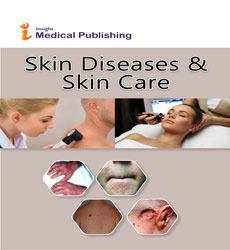Abstract
Early Prophylaxis of Adverse Food Reactions in Infants and Children by Dietary Manipulations Food Allergy in Children and Early Prevention
Since the turn of this century it is known that every food contains potential allergens, and can therefore trigger allergic reactions in sensitized children. The treatment of food allergy (FA) is based on the elimination of the triggering food. When this food is not a necessary nutrient, it can be easily eliminated from the diet because the child will not be exposed to nutritional derangements. Thus, treatment of FA is necessary only in children younger than two years affected by cow's milk (CM) allergy (CMA). In the first years of life CM represents the primary source of nutrients with high biologic value. All covering the recommended intake for age. In addition, this high nutritional value is associated with a low cost. However, children with CMA older than two years can avoid CM without nutritional loss if the nutrients necessary to cover daily requirements are provided by other foods such as meat, fish, vegetables and fruit. In the first years of life, dietary treatment of CMA is necessary for evident reasons. Nevertheless the choice of an adequate CM substitute among several hypoallergenic formulas is mandatory for infants with CMA. In the last few years the number of these formulas has progressively increased. Since all information on the nutritional adequacy and therapeutic efficacy of such formulas are usually supplied by the industry, pediatricians are occasionally confronted with data not always scientifically controlled. In addition, such data focus on hypothetical negative effects of competing formulas instead of delivering pertinent information on the therapeutic adequacy of the advertised formula. As a result pediatricians are now bombarded with a large variety of information on new special formulas named "hypoallergenic" and are confronted with a difficult choice among all these formulas. In this article we analyze the nutritional adequacy, the allergenicity and the efficacy of the special formulas commercially available for feeding babies with CMA. These formula include soyprotein formulas (SPF), CM protein hydrolysate formulas (HFs), home-made, meatbased formulas (Rezza's diet), also giving advices against bovine meat, goat milk, and transgenic foods, concluding with some guidelines for CMA prevention in babies. A great concern has arisen on the possible diffusion of genetically modified foods in children preventative formulas.
Author(s):
Arnaldo Cantani
Abstract | Full-Text | PDF
Share this

Google scholar citation report
Citations : 94
Skin Diseases & Skin Care received 94 citations as per google scholar report
Abstracted/Indexed in
- Google Scholar
- Publons
- Secret Search Engine Labs
Open Access Journals
- Aquaculture & Veterinary Science
- Chemistry & Chemical Sciences
- Clinical Sciences
- Engineering
- General Science
- Genetics & Molecular Biology
- Health Care & Nursing
- Immunology & Microbiology
- Materials Science
- Mathematics & Physics
- Medical Sciences
- Neurology & Psychiatry
- Oncology & Cancer Science
- Pharmaceutical Sciences
